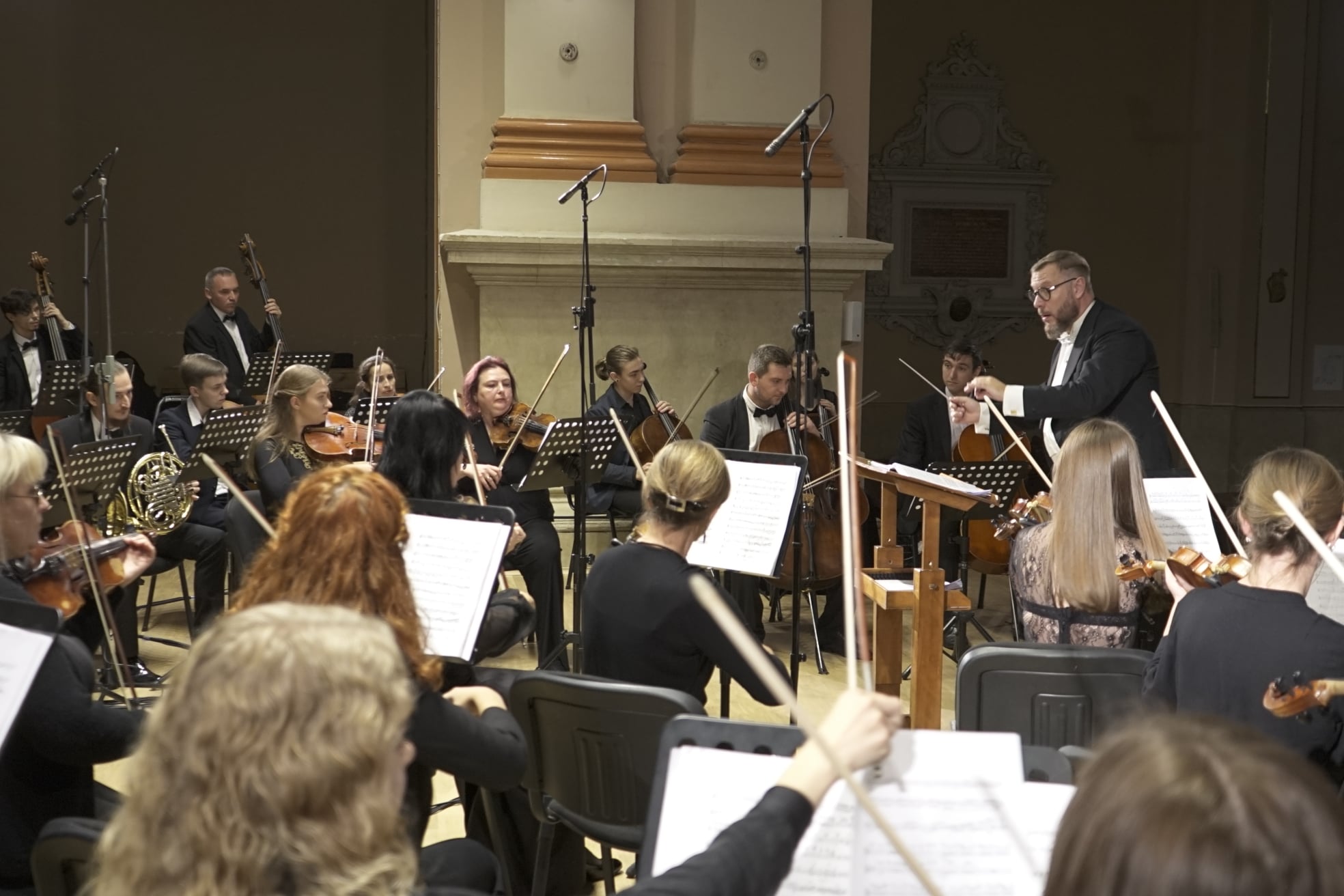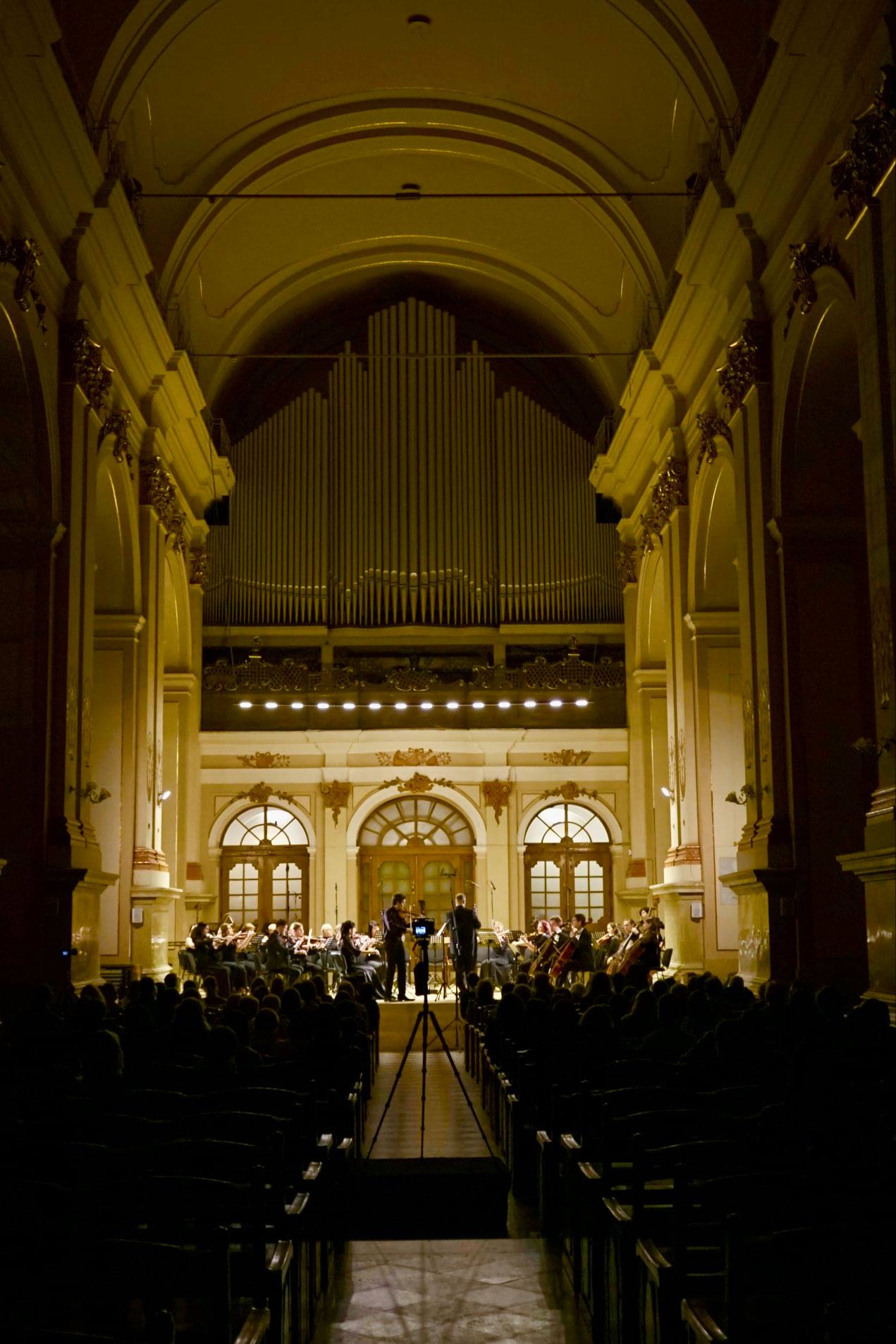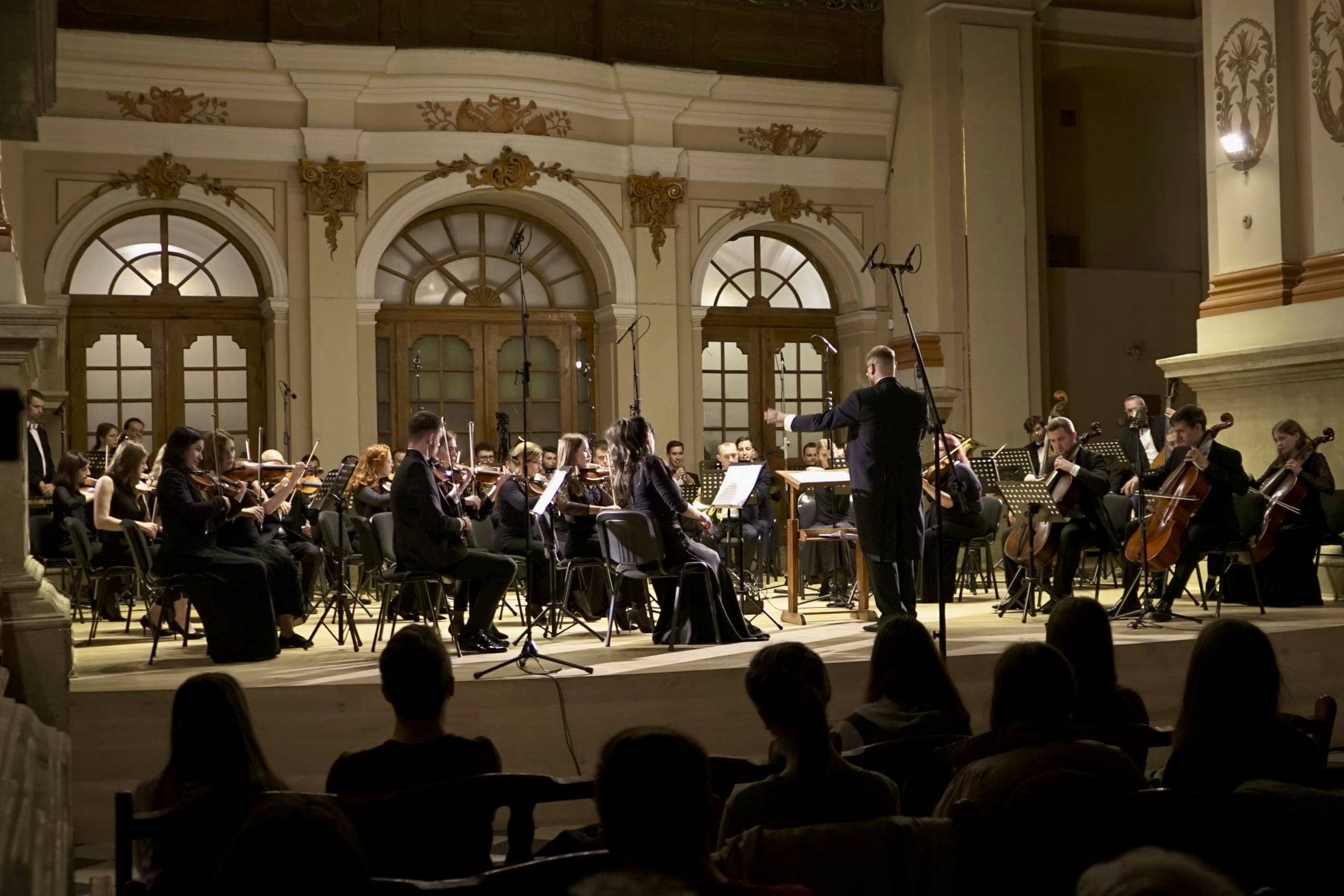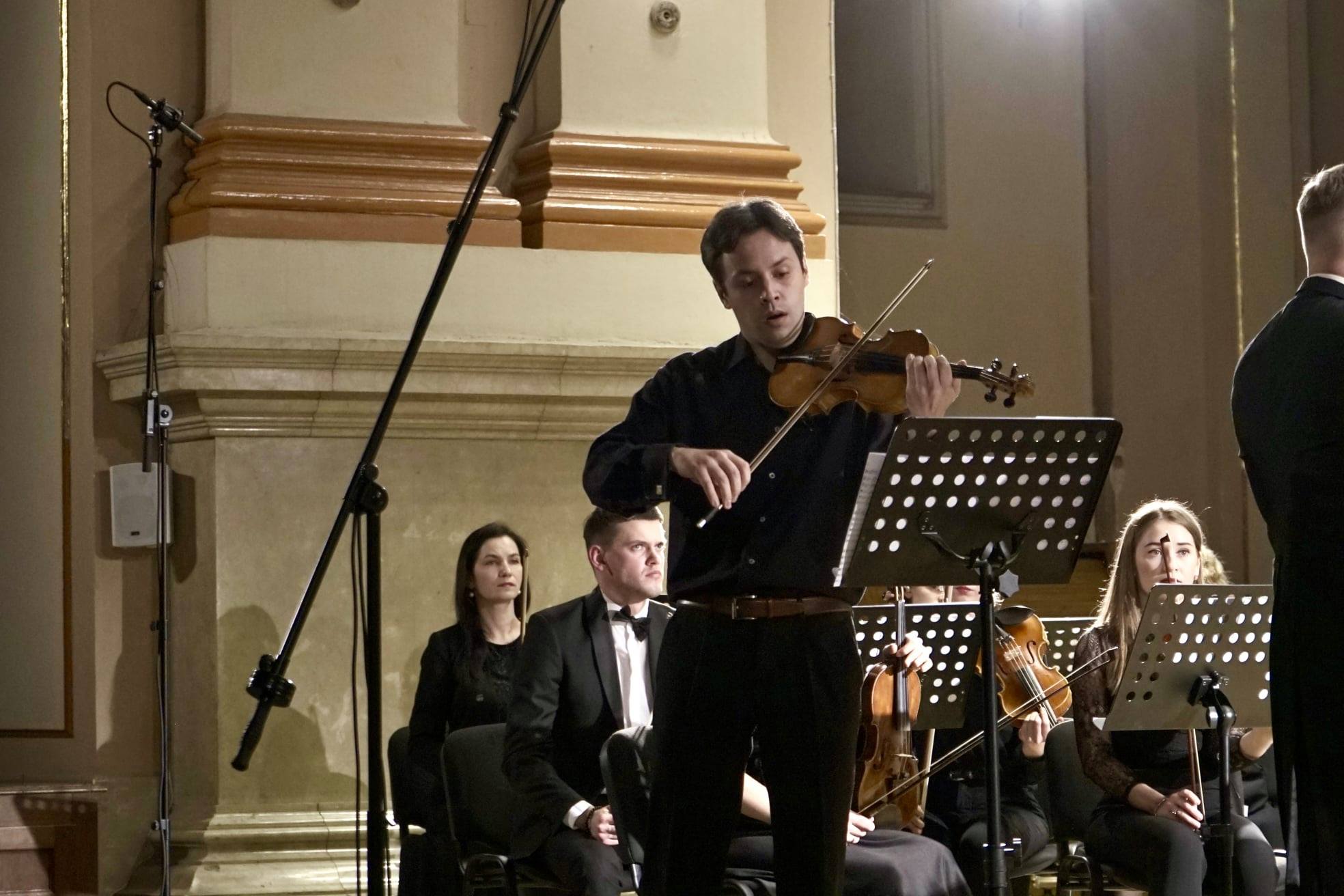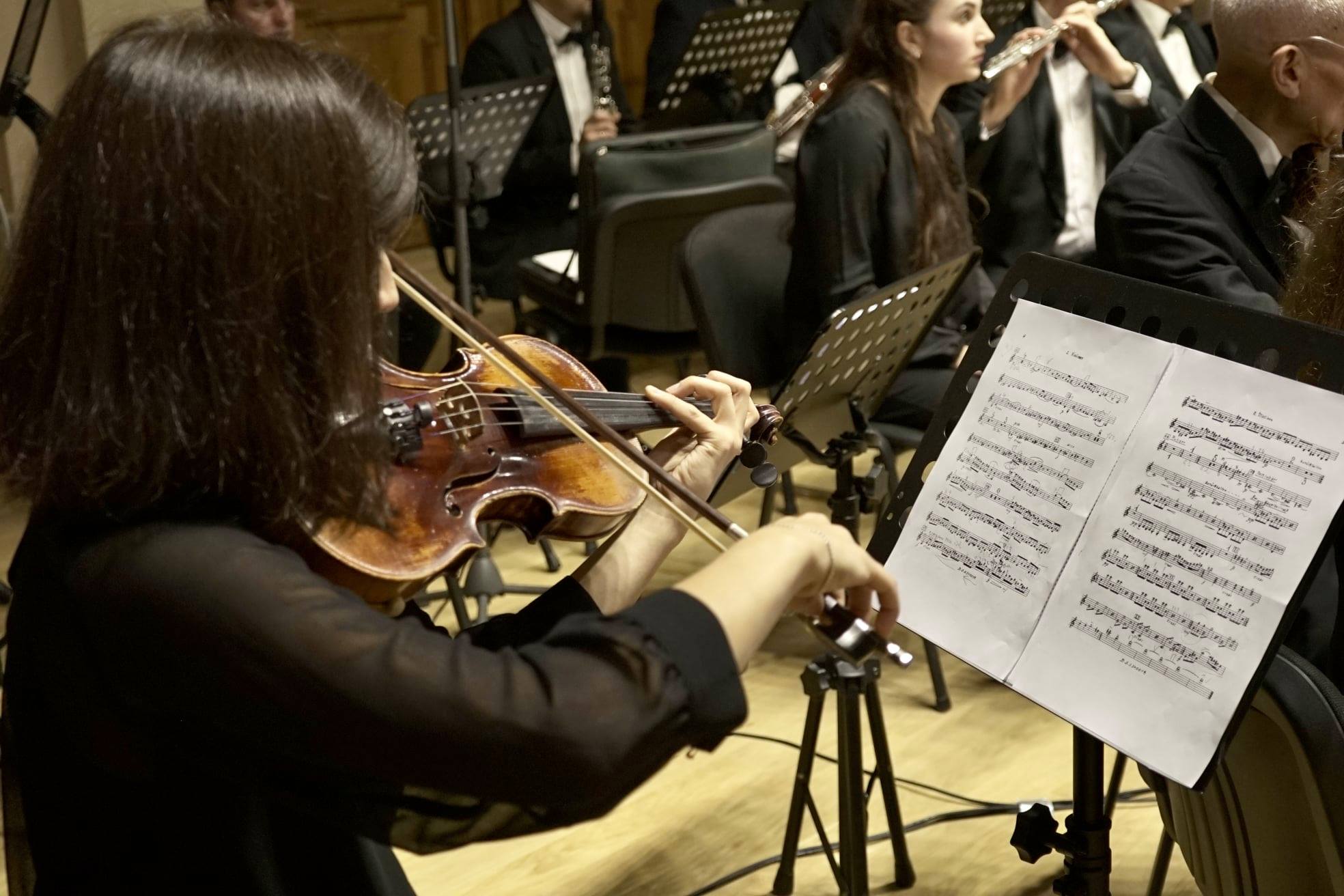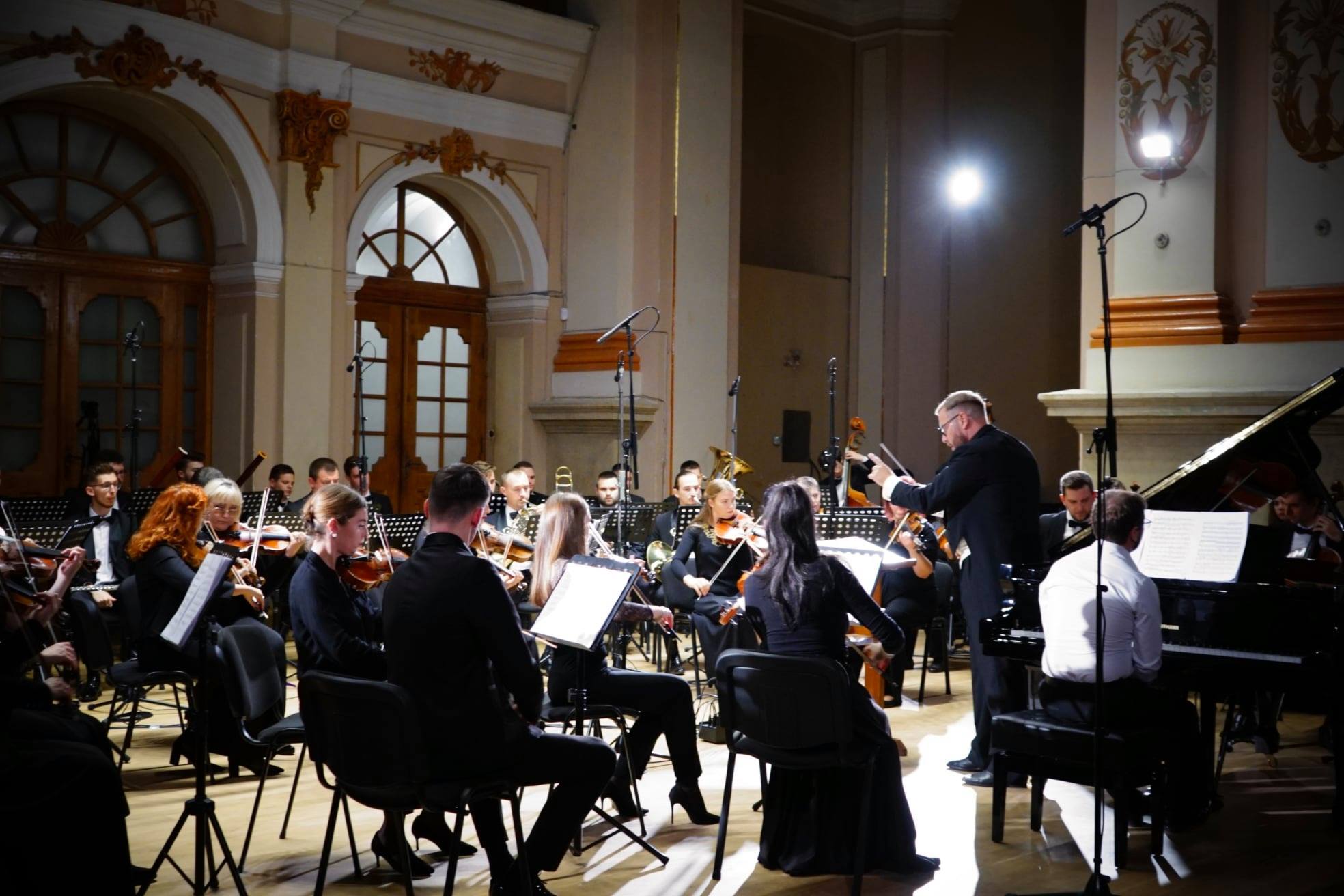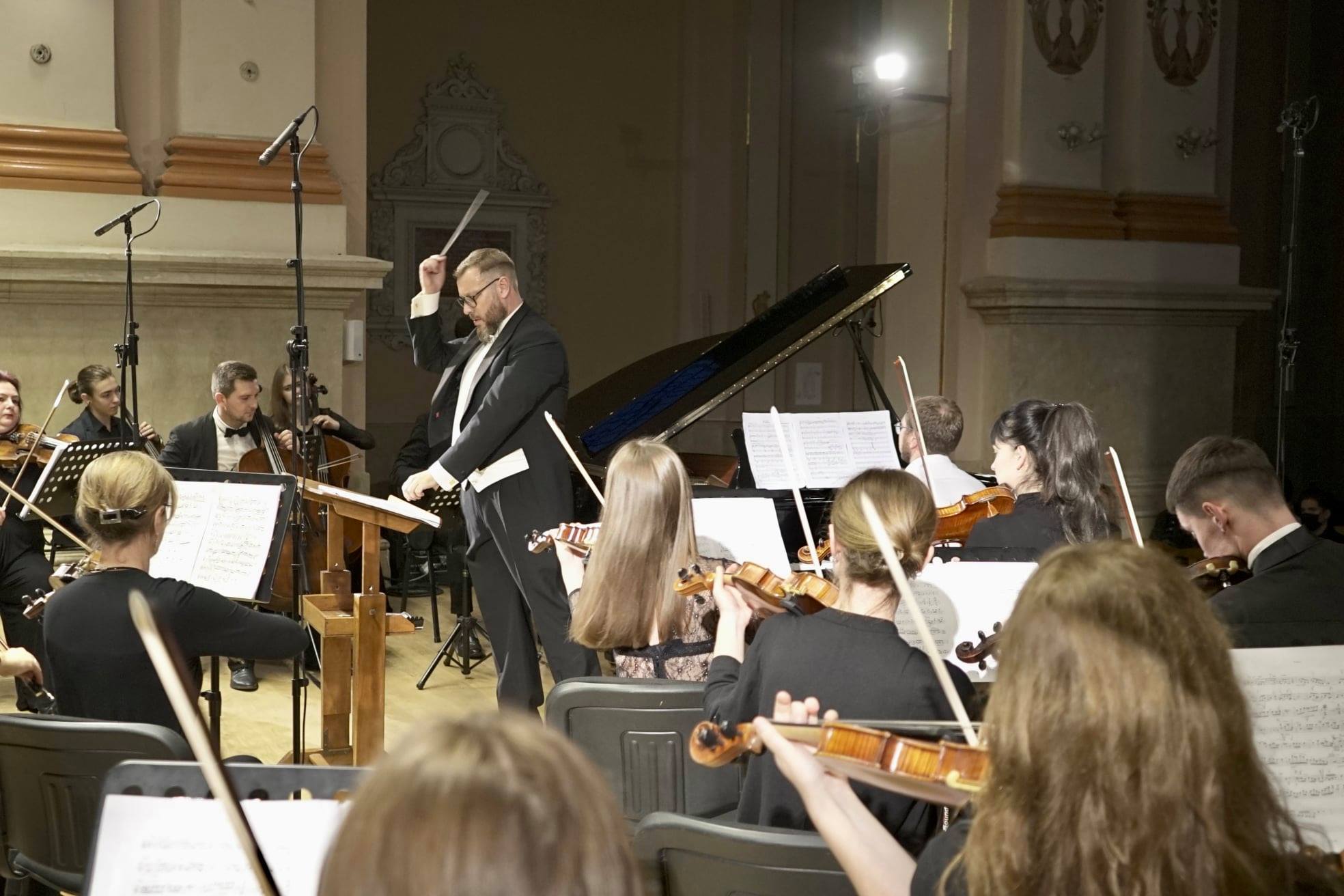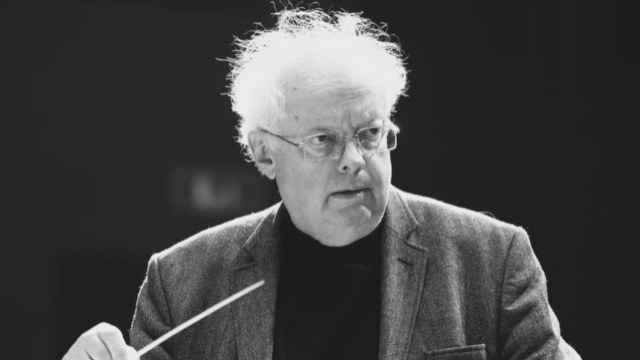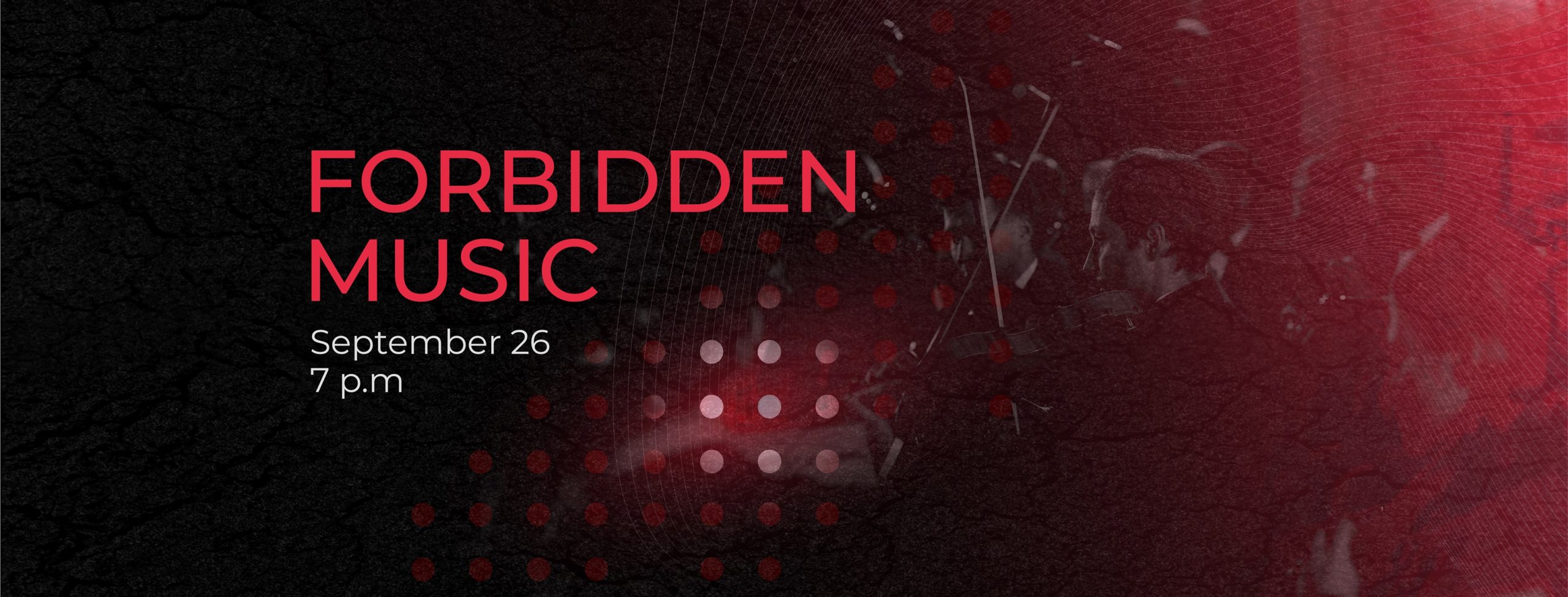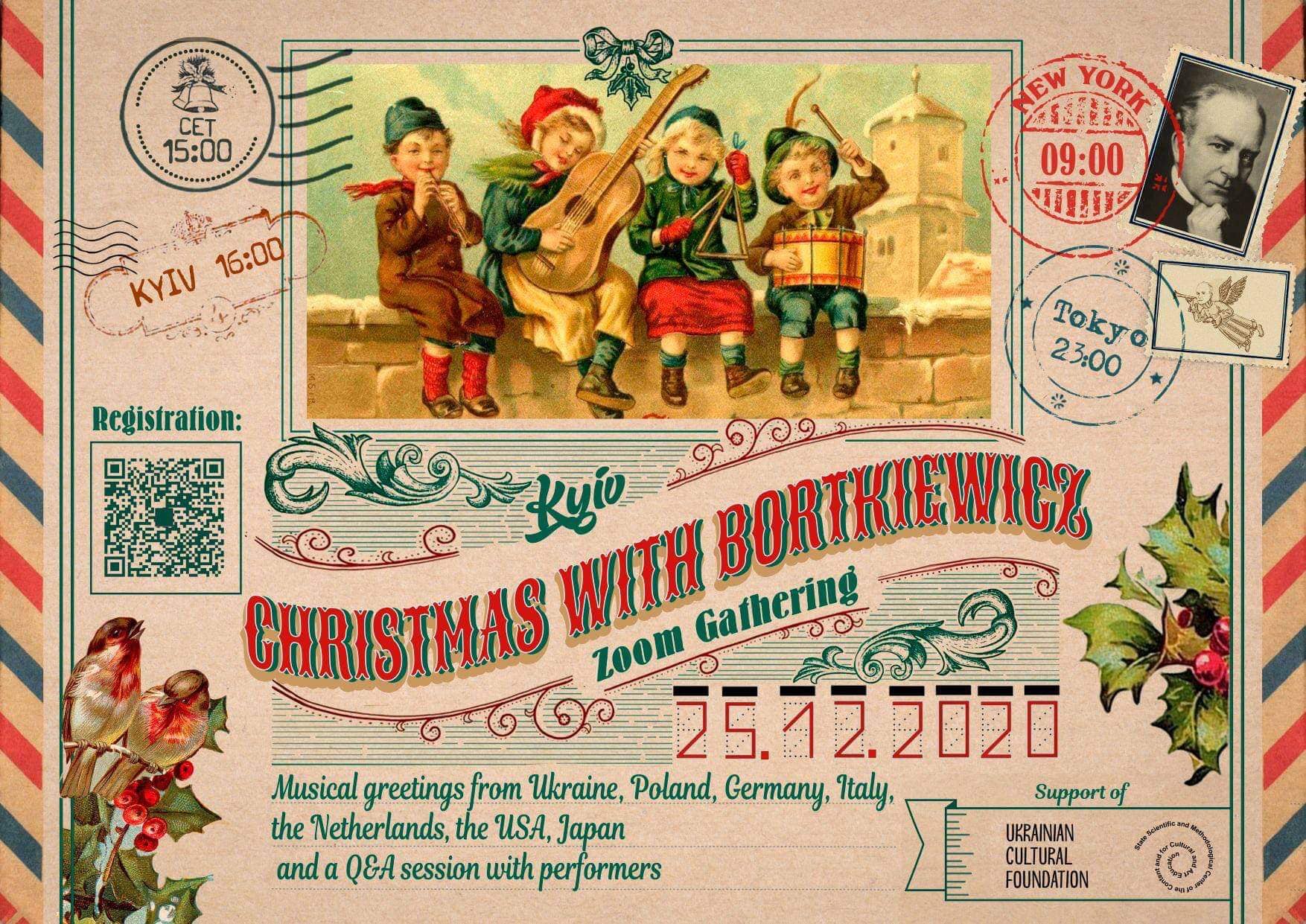One of its participants, Swedish composer Daniel Hansson, shares his views on the place of Ukrainian music in European culture and why totalitarian regimes yearned to ban cultural figures that didn't conform to official propaganda.
We sat down to talk with Swedish conductor and music director Daniel Hansson, who also teaches at the University of Malmö, Sweden. Daniel conducted the Ukrainian Festival Orchestra in the first concert - Forbidden Music - on September 26, 2021.
Daniel Hansson and Ukrainian conductor Ivan Ostapovych will conduct the final concert of this unique musical trilogy - Harmful Music - at the Lviv Concert House (Lviv Organ Hall) on October 19th, 2021.
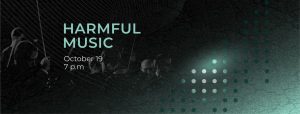
– Do you see similarities between Ukrainian and German music of the totalitarian period?
– There is a very strong similarity, because not only did the Soviet Union and Nazi Germany control people’s everyday lives, like housing, work, etc, but they also wanted to directly control people’s minds. For them, free art was harmful, because if people expressed themselves in art, music, painting, or theatre, it would impact minds and feelings. This is the similarity between Communism and Nazism; no difference. The problem is that you cannot control people’s minds. This music proves it.
When we look at these Ukrainian and German pieces, we see the same picture. When we perform these Ukrainian and German or Austrian compositions, there is no difference in terms of expression. So, I really feel that, in this case, politics lies outside the actual art form.
We tried to visualize the problem… when politics attempted to infiltrate art and impact it. The role of politics should be the promotion and funding of fine arts and making it possible for artists to express themselves freely. So, it’s quite inadmissible when politics infiltrate an art form. Therefore, I think the similarities - today, when we perform this music - are reflected directly in this music.
In this project, politics is shown geographically. Some of these composers, for instance, Karol Rathaus, were born in Galicia (Halychyna). He’s a German composer, but also Ukrainian somehow.
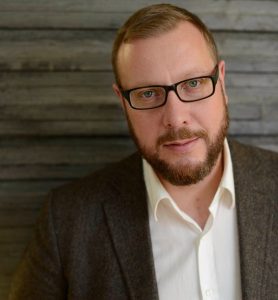
– Are there global differences between the Ukrainian and German composers in their music?
– They’re different, but that’s because of different generations and schools. Barvinskyi, Hindemith, Rathhaus, Hartman. Their music is quite different. But, it’s not due to geography; it’s due to the period and traditions. Hindemith has a very specific style of composing. He wasn’t Jewish, but his music was banned for other reasons… because he had Jewish friends, for instance. These composers stand alone as strong, individual voices of their art. When we perform a concert, we put this music together and play it; we take away the politics and create art. But, we need to discuss politics because that’s a historical period that must not be repeated, and we should make that very clear.
– What names of Ukrainian composers have you discovered in this project?
– I knew about Lyudkevych, because I'd conducted his pieces before. He’s an interesting figure, but in the context of this project, of course, Barvinskyi is the main discovery. I like his music a lot.
And Lyatoshynskyi. He’s a fantastic composer. His music should be in the international repertoire, performed as widely as Shostakovich, for example. This is truly very high-quality music.
– Unfortunately not. I think it’s almost like a secret because this music has always been in the shadows. Stalin’s machine promoted only Russian composers and discarded all others. But, thanks to this project, we can change this situation so that Ukrainian music finds its way to Europe - Sweden, Germany, etc. Also, the Forbidden Music project is connected to Ukrainian Live Classic, a remarkable app that has allowed the rest of the world to discover and understand Ukrainian music. It’s a very good platform.
Phone app brings 40 Ukrainian classical composers into your pocket
– This isn’t the first time you’ve conducted the Ukrainian Festival Orchestra. You have many projects with this ensemble. What’s the level of the orchestra, the musicians? What can you say about working with the UFO?
– It’s a fantastic ensemble! I think it shows the level of music life here in Lviv. It’s a strong international level orchestra; the musicians are curious and hard-working, and it’s a great pleasure to work with them. They are open to new ideas. Of course, there are also some cultural differences between people, between orchestra life in Ukraine and Sweden. We’re from different countries. But, we always try to find common ground and our work is very positive.
– Before the Covid-19 pandemic you collaborated with the National Music Academy here in Lviv; you held courses and seminars on conducting. Tell us about this experience.
– Due to Covid restrictions, work is slow. Two years ago we organized an exchange between the National Music Academy and Malmö University. This project involves music education, lectures, etc. It’s very exciting, because it gives a dynamic perspective of Swedish and Ukrainian music academies. I hope I can contribute in some way by conveying Scandinavian traditions, which are slightly different, but also linked in many ways to Ukrainian traditions. It’s a great honour to be invited here to Lviv and to share my knowledge with Ukrainian musicians in this way.
– What’s your role at Malmö University?
– I’m the University Music Director. My responsibility is conducting university ensembles - the Orchestra and the Choir. We take part in different university activities and perform during the concert season; we present many different projects - from traditional concerts to collaborative events. We’re currently working with the Malmö Municipal Theatre, preparing an innovative cross-disciplinary music and drama project. It’s very interesting to make different arts interact. Besides this, I also conduct orchestras outside the University.
– What’s the situation with the Covid-19 epidemic in Sweden and are there restrictions for teaching and working?
– Right now, we’ve opened up again and we all hope that the vaccination program will go faster. It’s already quite good in our country, but it needs to be faster, especially for young people. They don’t get vaccinated because they think they aren’t in danger. But, vaccination is about protecting others, not just yourself. It’s a great challenge!
Today, the situation looks pretty good. But, looking back on the past two years, I don’t want to be too hopeful.
We need to find a new way to live, because life is changing. And, it will continue to change, not only in a pandemic. The world is changing. And our lives too: we marry, have children, divorce. And music life changes, too.
During these lockdowns, I’ve followed the Lviv Concert House pages and seen how you’ve worked with communication, giving clear explanations, always attempting to create events and projects, and finding how to implement them safely. It’s very inspiring. Unfortunately, many other institutions closed, started hibernating, like bears in winter. “Is it spring? No. Ok”. In the Lviv Concert House, I saw no hibernating, only vision.
On the other hand, Forbidden Music is a kind of coronavirus project. We’ve been thinking about it for a long time. We have the opportunity to concentrate on history, repertoire, concert planning and recordings. If it had been a normal year, we wouldn’t have had time for such intellectually challenging projects.
Ukrainian music forbidden under Soviets comes to limelight in international project
– A few words about your interests and hobbies. I know you’re interested in history and culture.
– Absolutely. I’m interested in many things but art, theatre, food and wine are my major passions. I like to cook and find it interesting to create new flavours and aromas. In addition, I also enjoy hunting… when I have the time. I enjoy this process: making sausages, the smoke of a fire.
– And do you like Ukrainian cuisine?
– Very much. Everything with “кріп” (dill). I enjoy traditional Ukrainian food and the new innovative cuisine in Lviv where traditional cuisine is combined with contemporary techniques. Lviv is a fantastic city if you’re interested in food. When we started planning this project, Lviv become like a second home. I’m very happy and satisfied.”
– Has the city changed in the two years that you were away?
– Of course. Some buildings, some shops. But the centre, the heart of Lviv, is still the same. Your city has a rich history and your heritage is fantastic. I see certain similarities between Lviv and Prague or Vienna, but I also see the traditional identity of your city.
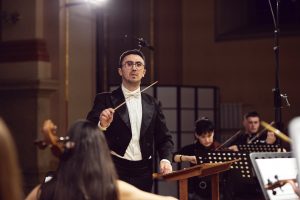
– You’re also interested in the renovation of old architectural details. Lviv has a rich heritage, architectural styles and rare buildings. But, not all of it is in good condition. How do you feel about that?
– Some places in Lviv are like a sleeping beauty. It’s still beautiful but needs some help. Lviv City Council is correct in wanting to renovate certain areas and sites... renew and refurbish windows, doors that have historical value. House by house I see how it works.
– So, our common project is also about history, memory, and connection with the past that should not be cut out of our lives and forgotten.
– Absolutely. I think history is interesting, not only per se but because it gives meaning to our lives and points us in a certain direction.
A historical project, it narrates through music the individual personalities of composers whose works were banned by the Nazi regime in Germany and Austria and the communist authorities in Soviet Ukraine.
The project was organized and implemented by the Collegium NGO with the support of the Ukrainian Cultural Foundation together with the Württemberg Philharmonic (Germany), the University of Malmö (Sweden), the Lviv Organ Hall, and the Galician Music Society (Ukraine). The project includes three concepts, each of which is reflected in the concert names: Forbidden Music, Illegal Music, and Harmful Music.
Important Covid news!
As of October 18, 2021, mass events are allowed if all the participants and organizers have vaccination certificates or a negative PCR test valid at the time of the event.
We ask all our guests to show their certificate or PCR test result to our team at the entrance to the Lviv Organ Hall.
Thank you for your understanding and cooperation.
Music is life!

